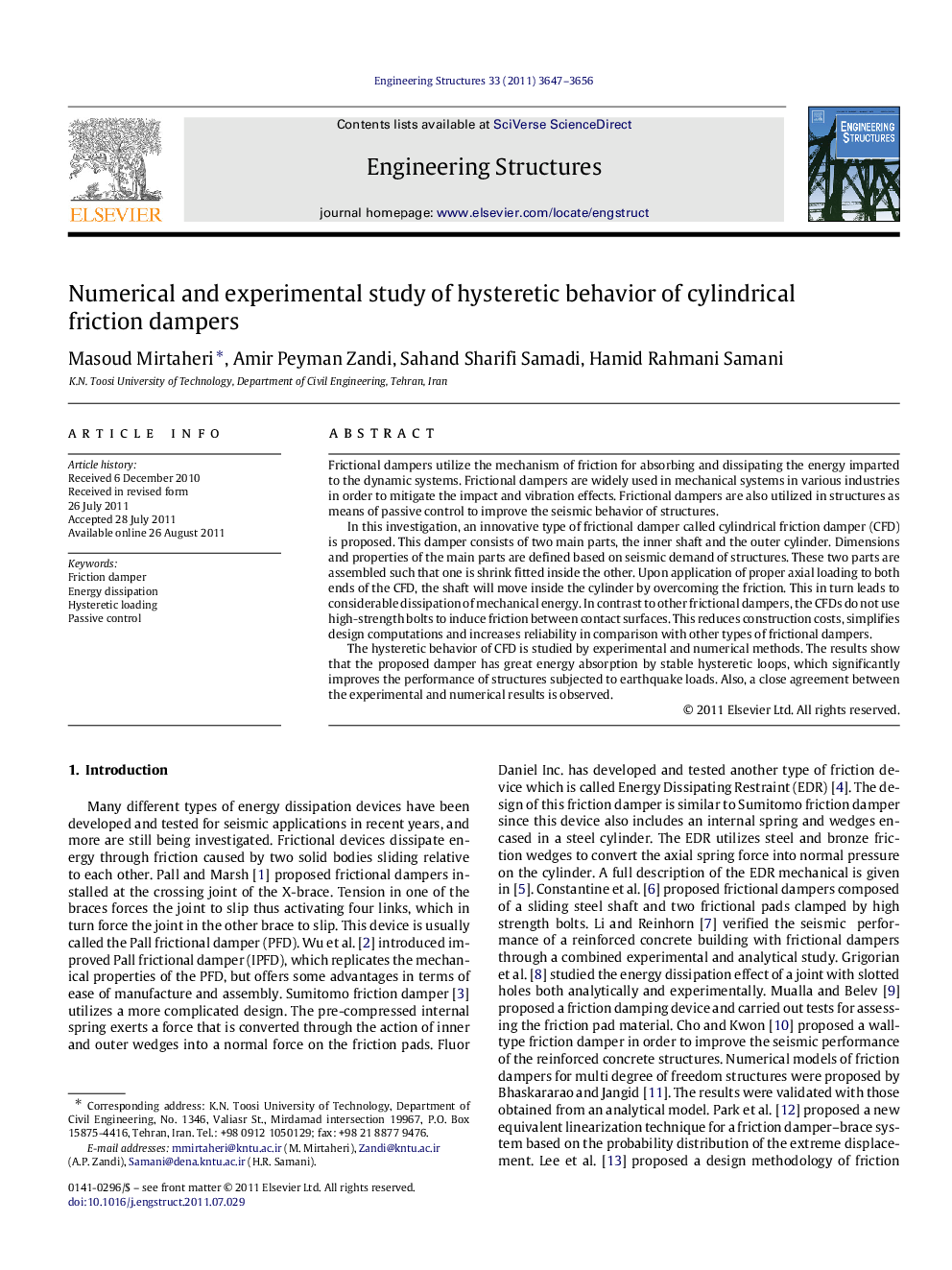| Article ID | Journal | Published Year | Pages | File Type |
|---|---|---|---|---|
| 268067 | Engineering Structures | 2011 | 10 Pages |
Frictional dampers utilize the mechanism of friction for absorbing and dissipating the energy imparted to the dynamic systems. Frictional dampers are widely used in mechanical systems in various industries in order to mitigate the impact and vibration effects. Frictional dampers are also utilized in structures as means of passive control to improve the seismic behavior of structures.In this investigation, an innovative type of frictional damper called cylindrical friction damper (CFD) is proposed. This damper consists of two main parts, the inner shaft and the outer cylinder. Dimensions and properties of the main parts are defined based on seismic demand of structures. These two parts are assembled such that one is shrink fitted inside the other. Upon application of proper axial loading to both ends of the CFD, the shaft will move inside the cylinder by overcoming the friction. This in turn leads to considerable dissipation of mechanical energy. In contrast to other frictional dampers, the CFDs do not use high-strength bolts to induce friction between contact surfaces. This reduces construction costs, simplifies design computations and increases reliability in comparison with other types of frictional dampers.The hysteretic behavior of CFD is studied by experimental and numerical methods. The results show that the proposed damper has great energy absorption by stable hysteretic loops, which significantly improves the performance of structures subjected to earthquake loads. Also, a close agreement between the experimental and numerical results is observed.
► An innovating type of friction damper called CFD is introduced. ► The hysteretic behavior of CFD is studied by experimental and numerical methods. ► It is shown that CFD is highly effective to reduce earthquake damages on structure.
